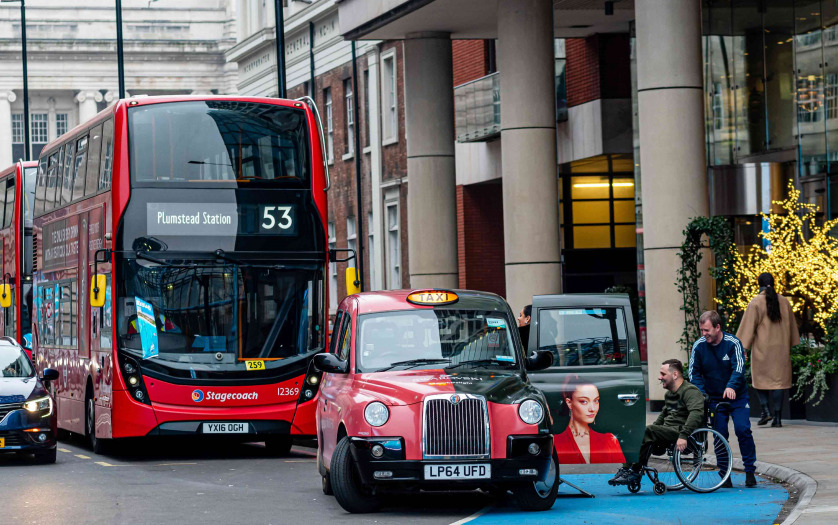
Ministers have urged councils to act on new government guidance to help improve the accessibility of taxis and minicabs in their area.
Taxis and private hire vehicles (PHVs) are regulated by local licensing authorities and the government’s updates to guidance, published today (17 November 2023), underline councils must take action against drivers who discriminate against people with disabilities and guide dog owners, issuing fines and suspending licences where required. PHV operators, meanwhile, are encouraged to identify a passenger’s accessibility needs before they take a booking to ensure an appropriate vehicle is provided.
In addition, councils should incentivise the uptake of wheelchair accessible vehicles and ensure they can be used easily and safely by a range of passengers. Some wheelchair accessible vehicles may not be suitable for other disabled passengers and, when issuing licences, licensing authorities should ensure their area has the right mix of vehicles to suit their community.
Roads Minister, Guy Opperman, said: Disabled people rely on taxi and private hire vehicles services and it’s unacceptable for people to be unlawfully discriminated against when travelling.
It’s vital these services cater for disabled people’s needs, and local authorities should take action now to ensure drivers and operators understand their duties so everyone can travel with confidence.
Other recommendations include training and assessing drivers with a focus on taking a defensive approach to driving, such as recognising the impact of speeding, or driving while distracted or fatigued, particularly where there have been passenger complaints.
The guidance also seeks to support industry by removing undue burdens. For instance, given the reliability and ease of satnav systems, PHV drivers should not be required to undertake navigational skills tests for pre-booked journeys, while licensing fees should be reviewed regularly to ensure they are appropriate.
Alongside the guidance, the Department for Transport (DfT) also intends to launch a further call for evidence specifically about passengers’ accessibility needs in taxis and PHVs to inform future policy decisions.
A Disabled Persons Transport Advisory Committee (DPTAC) spokesperson said: DPTAC welcomes this new best practice guidance, particularly the much greater emphasis on making taxi and PHV services more accessible to disabled people.
We hope that this will see licensing authorities addressing the barriers that hinder disabled people using taxis and PHVs, including a rapid reduction in the 38% of authorities that do not make disability awareness training mandatory for drivers.
We have been pleased to work with DfT in the production of this guidance and will continue to press for more steps to make taxis and PHVs more accessible.








